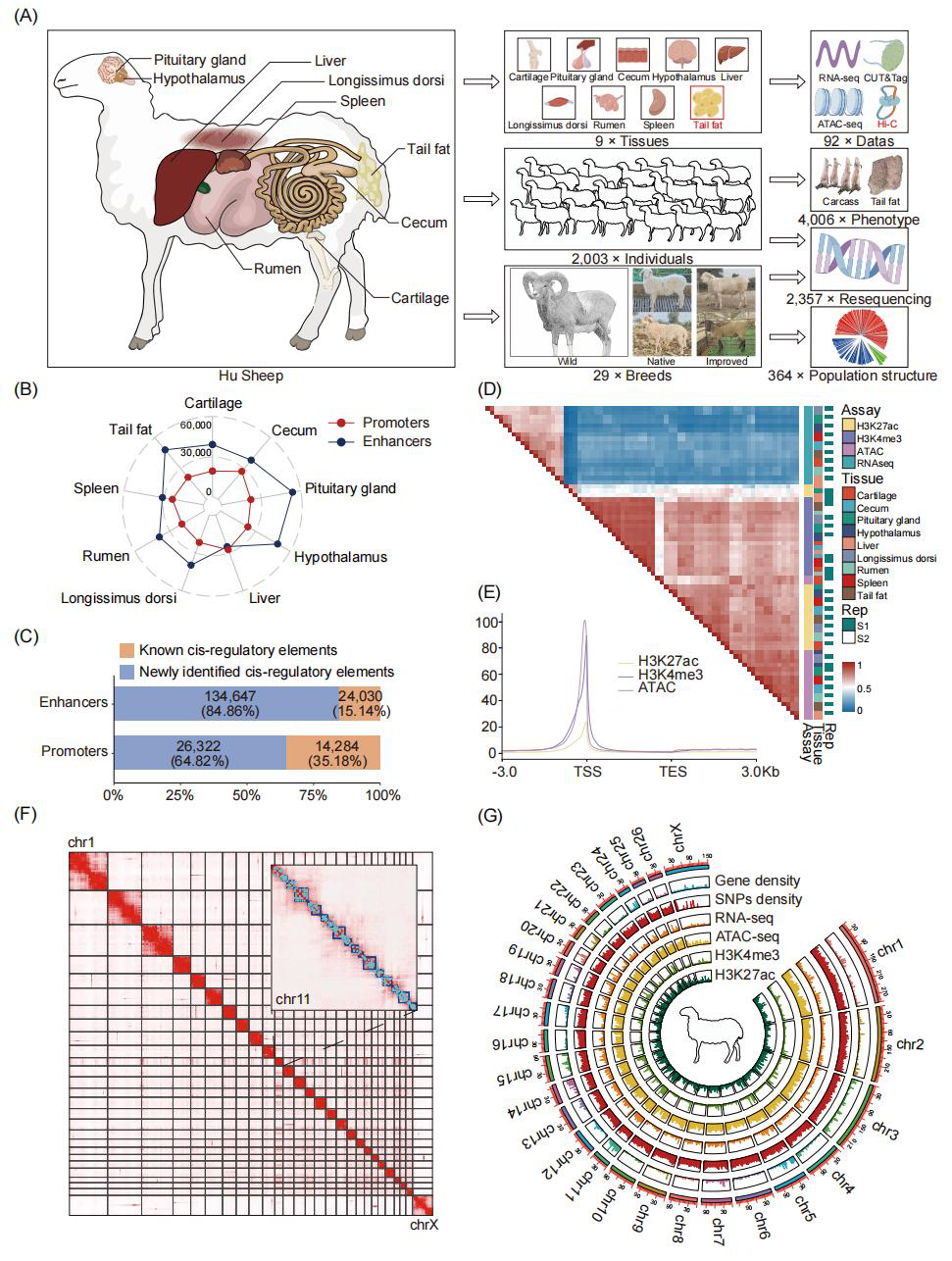On December 15th, the research team led by Professor Wang Weimin of College of Pastoral Agriculture Science and Technology, Lanzhou University (LZU), published an online paper entitled “Comprehensive multi-tissue epigenome atlas in sheep: A resource for complex traits, domestication and breeding” in the international journal iMeta .

Based on multi-dimensional (RNA-Seq, ATAC-Seq, CUT&Tag and Hi-C) data from nine major tissues of sheep, the team constructed the first multi-tissue epigenome atlas of sheep, systematically annotated the sheep genome, and identified 753,723 nonredundant functional elements, over 60% of which is novel. It mainly includes tissue-specific promoters and enhancers linked to sensory abilities, immune response, and tail fat deposition (Figure 1). Combined with sheep breeds with different tail types worldwide and a sheep cohort built up over 10 years, the team identified target gene (BMP2) and a novel variant (Chr13:51760995A>C) that could influence sheep tail fat deposition (Figure 2) through integration analysis of multi-layered data sets. The research findings fill the knowledge gap in the field of multi-tissue epigenetic atlas of shape and provide valuable data resources and genetic materials for sheep breeding.
Paper link: https://doi.org/10.1002/imt2.254




